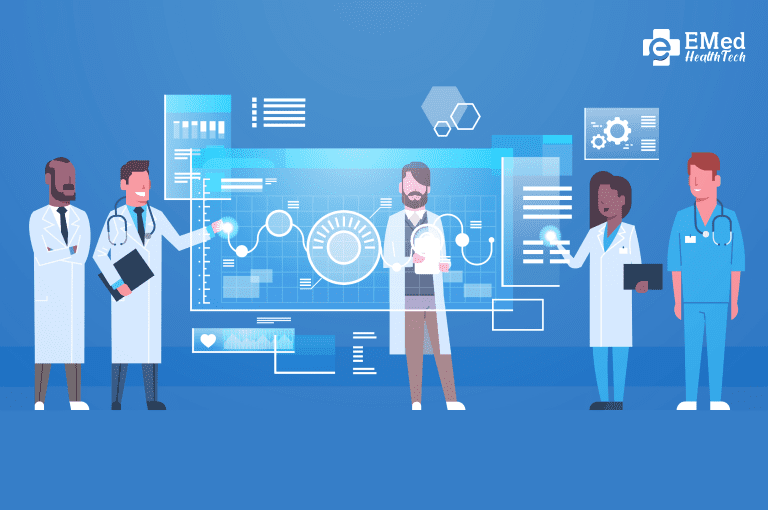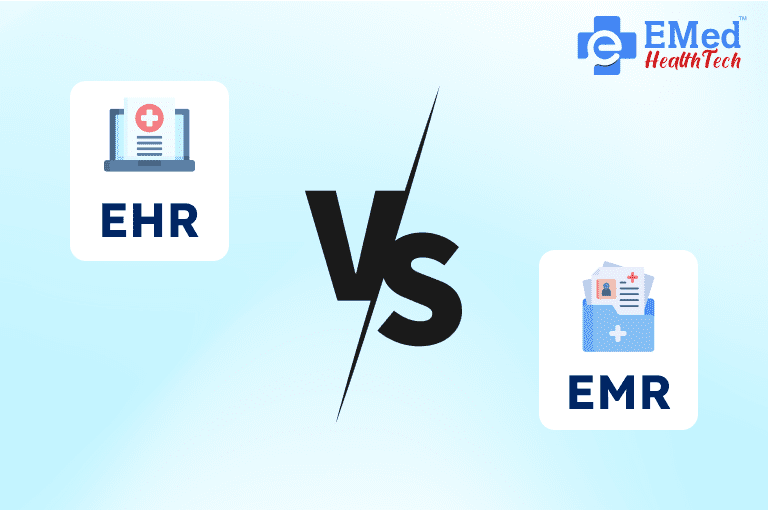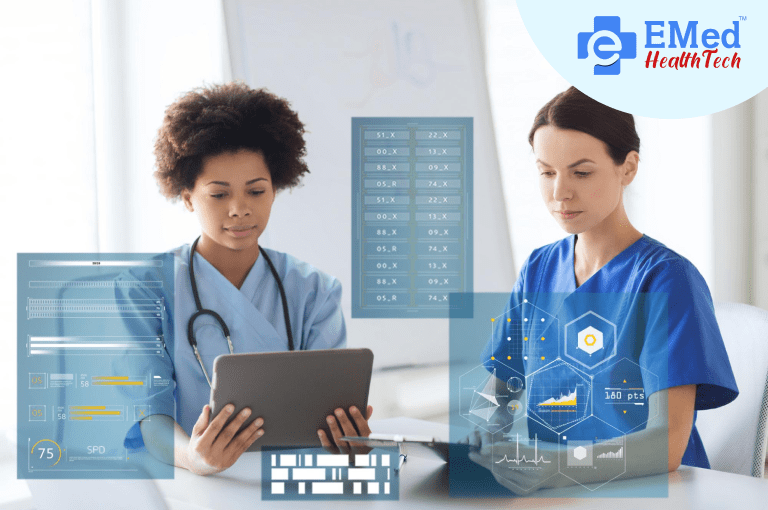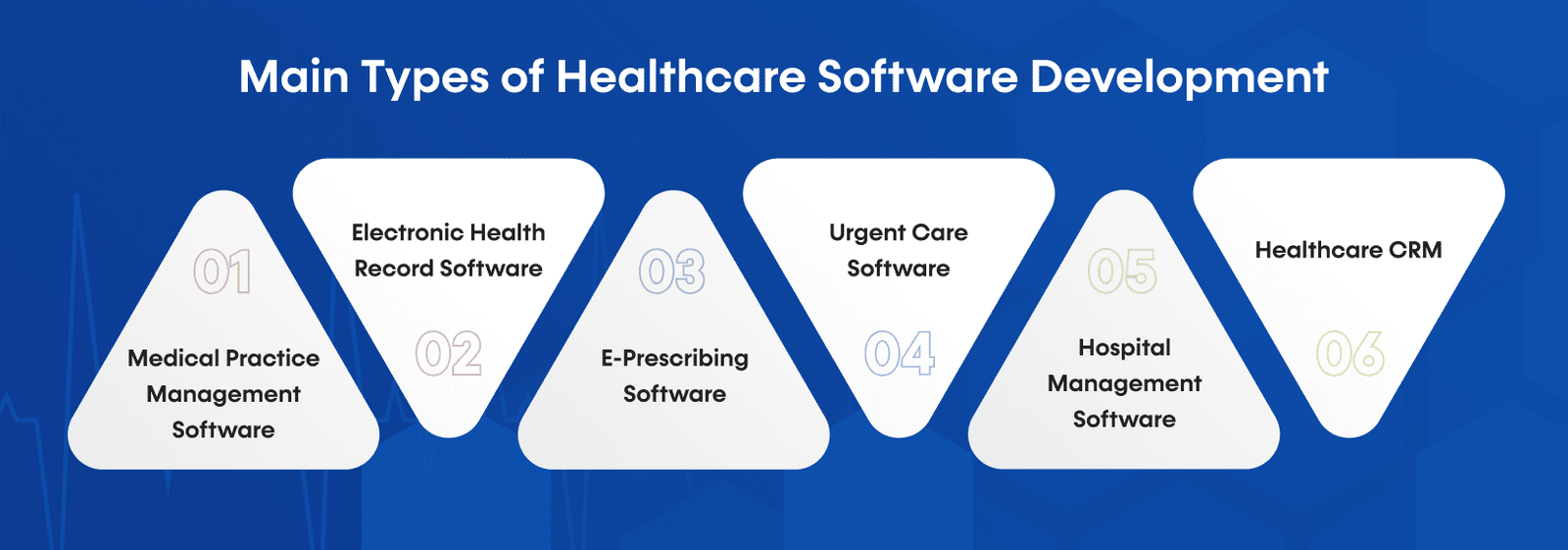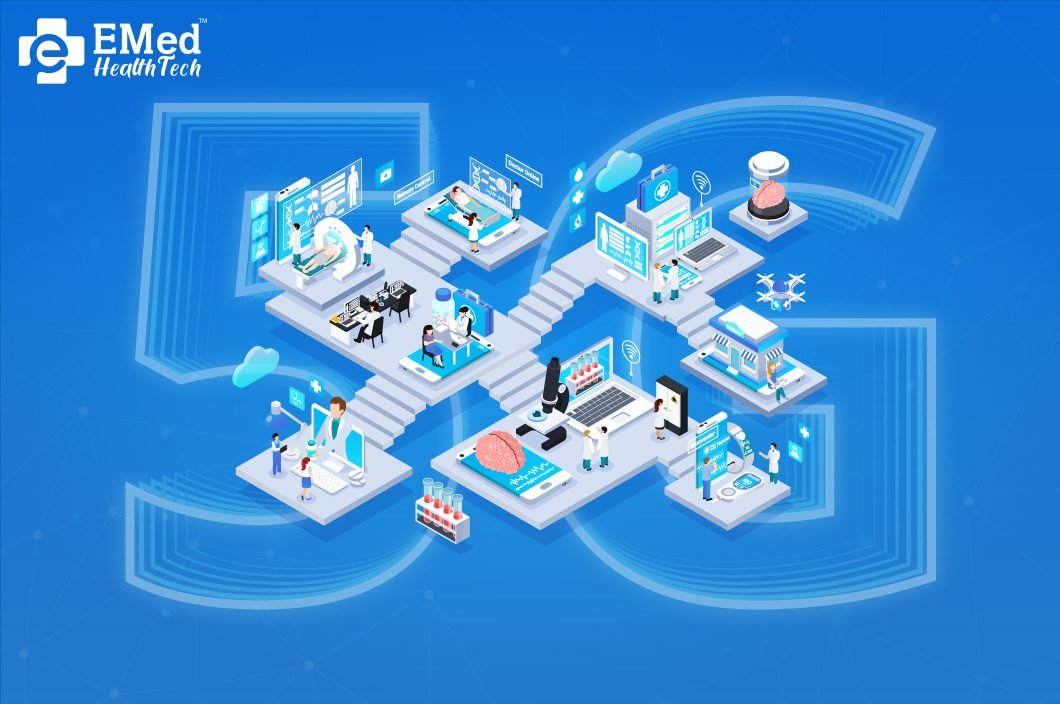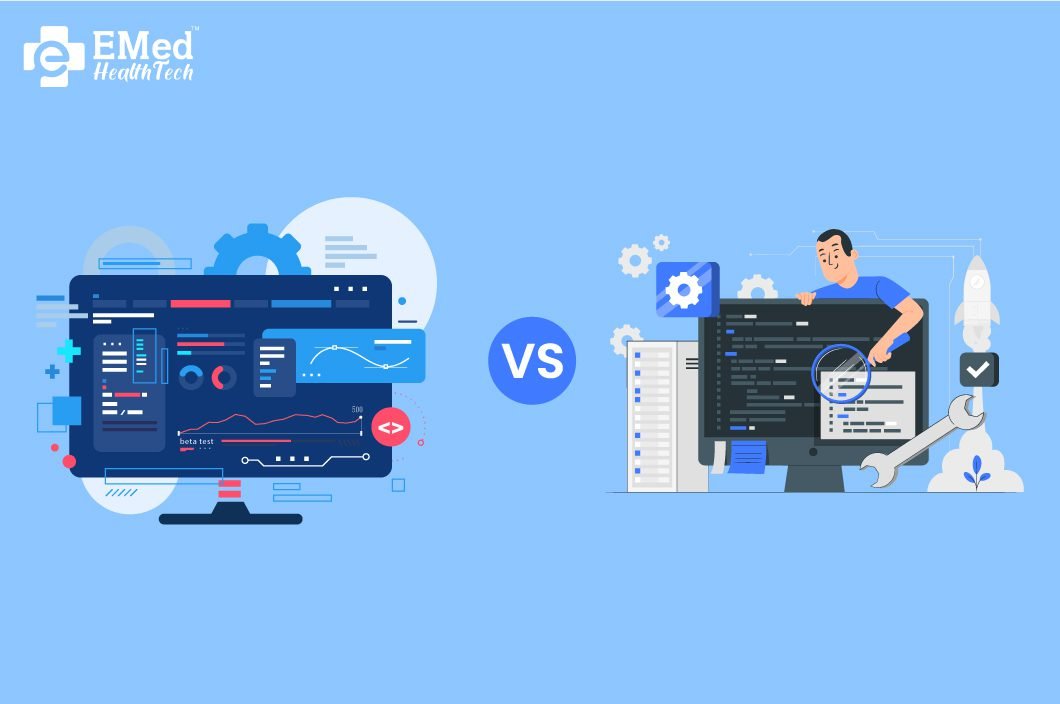Many people are preoccupied with fulfilling their obligations and need more attention to their health. In these circumstances, many people want a platform that allows them to efficiently and flexibly meet doctors, obtain medication, and ask for advice. To better serve people’s requirements, the healthcare sector has moved to online platforms in today’s world with the help of medical software developers offering custom healthcare software development.
Technological advancements are revolutionizing patient management, administrative procedures, and therapeutic approaches in the dynamic global healthcare sector. The development and integration of advanced telemedicine software emerge as a pivotal, transformative element, responding to the escalating demand for efficient and effective healthcare solutions, thereby fostering improved patient outcomes.
Healthcare is transforming thanks to the integration of healthcare software development, which also improves patient outcomes, increases accessibility for people worldwide, and increases productivity.
What Are The Present-Day Healthcare Challenges?
Numerous obstacles prevent the healthcare sector from operating effectively and efficiently. One of the main problems is the laborious management of patient data. Traditional paper records are hard to keep up with and can also be lost or erroneous.
In addition, the cost of healthcare is rising quickly, which makes it harder for people to pay for the care they need, particularly in underprivileged areas. The gap in healthcare access is another major issue, especially in rural and underdeveloped regions with few medical facilities and specialists.
Custom healthcare software development presents viable answers to these ubiquitous issues. By automating and optimizing procedures, technology can help improve data management, cut operational costs, and increase access to healthcare services.
The Role of Software Solutions in Improving Health Care
Delivering Electronic Health Records (EHR) is at the forefront of improving health data management. EHR systems enable the digital storage of patient information, making data easily accessible to authorized healthcare providers regardless of location. This accessibility offered by software development in healthcare enhances continuity of care, reduces errors in patient records, and speeds up the diagnostic process.
Telemedicine software have become essential tools in bridging the gap between healthcare professionals and patients in remote areas. Healthcare software design makes healthcare accessible in areas lacking adequate medical infrastructure through video calls, remote monitoring, and digital consultations.
Further, telemedicine software is also revolutionizing patient management by allowing individuals to monitor their health through their smartphones. These custom healthcare software development provide features such as medication reminders, health advice, physical activity tracking, and direct communication with healthcare providers, promoting a proactive health management approach.
Improve Patient Outcomes With Predictive Analytics
Prescient analytics is revolutionizing the field of healthcare by upgrading understanding results through data-driven figures and mediation. Leveraging tremendous chronicled information and advanced calculations, this innovation permits therapeutic experts to proactively address potential well-being issues sometime recently they raise. By expecting maladies and complications, healthcare suppliers can start preventative measures or tailor treatment plans that viably oversee or indeed turn away the movement of conditions like diabetes or cardiovascular illnesses.
Utilizing Artificial Intelligence (AI) and Machine Learning (ML), predictive analytics changes crude well-being information into noteworthy bits of knowledge. These progressed instruments handle and analyze huge data sets quickly, accomplishing a level of exactness that far outperforms conventional strategies. For illustration, a predictive show might analyze a patient’s hereditary data, way of life variables, and past well-being records to distinguish special hazard variables and suggest particular way of life alterations or medications.
The integration of predictive analytics in healthcare settings comes about in critical benefits, counting made strides, quiet care, decreased clinic readmissions, and more effective utilize of assets. Eventually, by implanting AI and Machine Learning into their operational system, healthcare can not as it were optimize their benefit conveyance but too altogether upgrade the quality of life for their patients.
Reduced Costs And Operational Efficiency
Software solutions significantly reduce operational costs associated with healthcare delivery. The automated system streamlines administrative tasks such as scheduling, billing, and compliance documentation, allowing medical staff to focus more on patient care rather than paperwork.
For example, automated invoicing software can reduce fee entry errors, increase revenue, and reduce financial discrepancies.
In addition, custom healthcare software development designed for hospital supply chain management can effectively track inventory levels, predict supply and equipment needs, and prevent backlogs overpriced or out of stock. Effective resource management ensures that healthcare providers can deliver uninterrupted services while controlling costs.
Future Trends And Innovations In Healthcare Software Development
Several emerging trends are expected to continue to transform the healthcare industry. Blockchain technology, known for its security and transparency, is poised to revolutionize how patient data is stored and shared between healthcare providers.
Blockchain can facilitate a more collaborative environment between healthcare systems without compromising patient privacy by ensuring data integrity and security. The Internet of Medical Things (IoMT) is another rapidly growing field. This network of connected devices transmits patient data to healthcare providers, helping to improve the quality of care through continuous monitoring and data collection.
Additionally, augmented reality (AR) and virtual reality (VR) are significantly advancing in medical training and patient treatment scenarios. These technologies enrich the medical training experience and facilitate complex surgical procedures by providing a real-time, three-dimensional view of a patient’s anatomy.
The Bottom Line
There is no denying that hospital software development is transforming the healthcare sector by solving its key challenges. Healthcare software design technology is at the heart of the healthcare revolution, with improved data management through EHR, improved accessibility through telemedicine software, reduced costs through automation, and predictive insights from advanced analytics.
As the industry continues to evolve, healthcare providers and policymakers must adopt and invest in software development in healthcare, ensuring that the benefits of technology modernity are fully utilized to create a more efficient, effective, and comprehensive health system globally.
EMed Healthtech being one of the leading custom healthcare software development services providers has a team of medical software developers offering top-notch solutions for transforming healthcare by making it more accessible and easier to get quick consultations and advice on the matters. Looking for software development in healthcare? Get in touch with one of the best hospital software development providers, right away!
